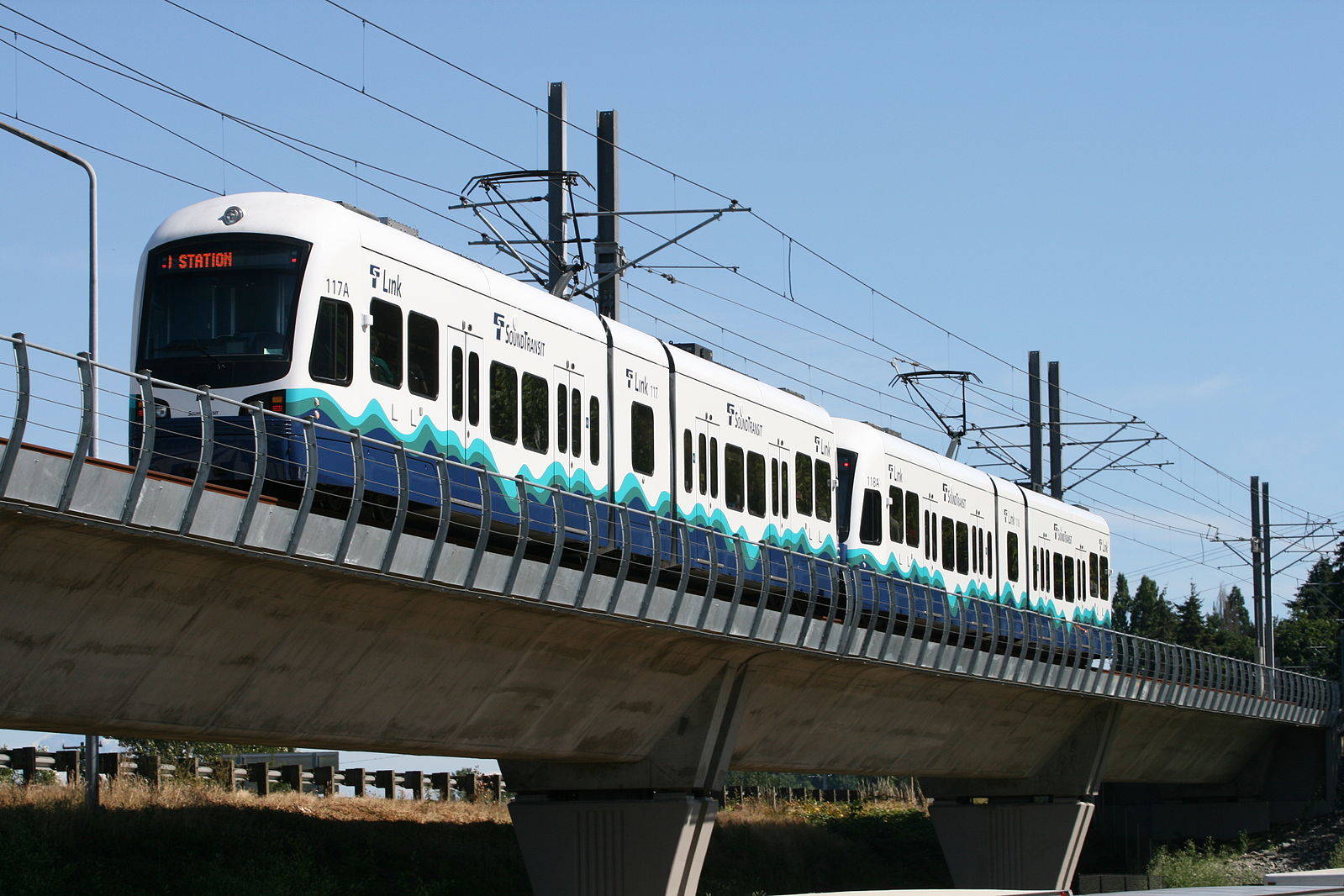Sound Transit is once again in the cross-hairs of state lawmakers—this time, in the courts. A class-action lawsuit, partially orchestrated by state Sen. Phil Fortunato (R–Auburn) has been filed against Sound Transit by seven central Puget Sound residents in Pierce County Superior Court.
The lawsuit alleges that the 2015 bill that authorized Sound Transit to go to the voters to approve Sound Transit 3 is unconstitutional. The measure—approved with 54 percent of the vote in 2016—allows for the collection of car tab taxes to fund an infrastructure package to build out the regional Link Light Rail and bus systems.
As a regional transit authority, Sound Transit levies a combination of sales, property, and car tab taxes on residents in the western portions of King, Pierce, and Snohomish counties to pay for projects. The seven plaintiffs in the suit all live within the agency’s regional taxing district, two of whom reside in King County. The plaintiffs are seeking $240 million in damages.
Ever since the 2016 ballot measure was approved, the transit agency has come under fire for the way it calculates car tab tax rates. The agency utilizes a valuation formula that was approved by the legislature back in the 1990, one which critics argue doesn’t reflect accurate market values and sometimes inflates the value of cars, hiking up owners’ tax bill. Sound Transit estimated that the tax increase would raise rates by $110 per $10,000 in vehicle valuation, but reports emerged in early 2017 documenting steep increases (such as a raise from $90 annually to more than $260).
After headlines about “sticker shock” circulated, state lawmakers began gunning for the agency during both the 2017 and 2018 legislation sessions, pushing bills that would force Sound Transit to adopt a valuation system based on Kelley Blue Book. However, such bills never gained enough approval to make it to the governor’s desk. Sound Transit has promised to change its vehicle depreciation schedule by 2029 in order to pay off bonds, but argues that changing the system now could cut critical funding and delay or halt transportation projects.
The crux of the argument is that the 2015 bill authorizing Sound Transit to increase taxes didn’t specifically spell out that the agency would be using the ’90s vehicle valuation schedule. “The constitution has that clause to prohibit deceptive things from happening and that’s pretty much what this is,” Sen. Fortunato told Seattle Weekly. “Sound Transit drafted the legislation. If they were to do this properly, the proper way to do it would’ve been to list the [motor vehicle excise tax] schedule.”
Fortunato—who does not live within the agency’s taxing district boundaries, but has long been critical of Sound Transit—said that he originally tried to file a lawsuit making the same argument back in April, but couldn’t get any lawyers to do the work pro bono. The lawyers that are bringing the current case are Joel Ard and David DeWolf, who found the plaintiffs and filed the case themselves independent of Fortunato. DeWolf testified before the state Senate last year, where he raised the same argument that’s made in the current class-action lawsuit.
Fortunato said that he has drafted a senate bill for the 2019 legislative session that would—if passed—prevent Sound Transit from starting construction on new projects, change the vehicle valuation system to reflect current market values, and mandate that the Sound Transit board members be elected to their seats.
In response to the lawsuit, Sound Transit spokesperson Geoff Patrick wrote an email to Seattle Weekly stating: “We are confident in the validity of the law and will be reviewing and responding to the lawsuit. Since voters’ decisive approval of ST3 highway congestion has only worsened, and it will continue to worsen. Any reduction of [motor vehicle excise tax] revenues would delay or kill voter-approved transit alternatives.”
jkelety@soundpublishing.com


